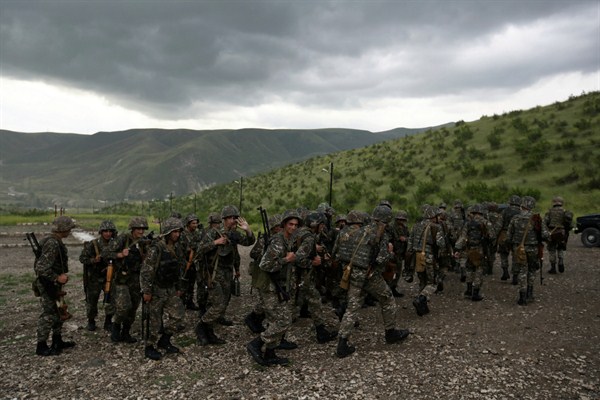The honeymoon is over for Armenia’s popular prime minister, Nikol Pashinyan. In addition to a series of problems at home, he has no choice but to deal with a perennial headache: the three-decades-old conflict with Azerbaijan over the disputed territory of Nagorno-Karabakh, which dates back to the last years of the Soviet Union in 1988.
Pashinyan came to office suddenly and unexpectedly in April 2018 on a wave of popular protests that swept away the previous government, which had monopolized power and was tainted by corruption. That peaceful revolution transformed Armenia overnight, briefly put it on the world’s television screens and even made it The Economist’s “country of the year,” as the state that had “improved the most in the past 12 months.”
Eighteen months on, Pashinyan is still popular and his party has a large majority in parliament. Discredited and corrupt figures have been dislodged from ministries, municipalities and universities. A younger generation has taken top jobs. Yet Pashinyan is now facing a problem that charismatic leaders of political revolutions have almost always faced over the years: how to move from the politics of the street to stable government.

